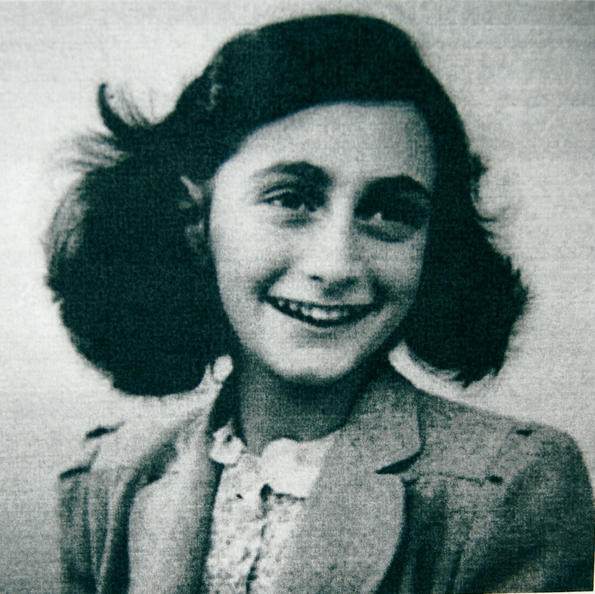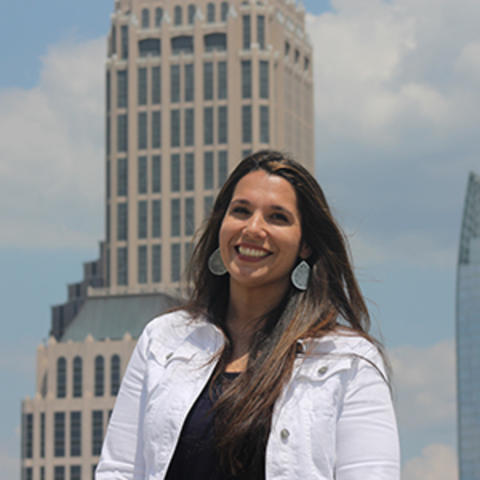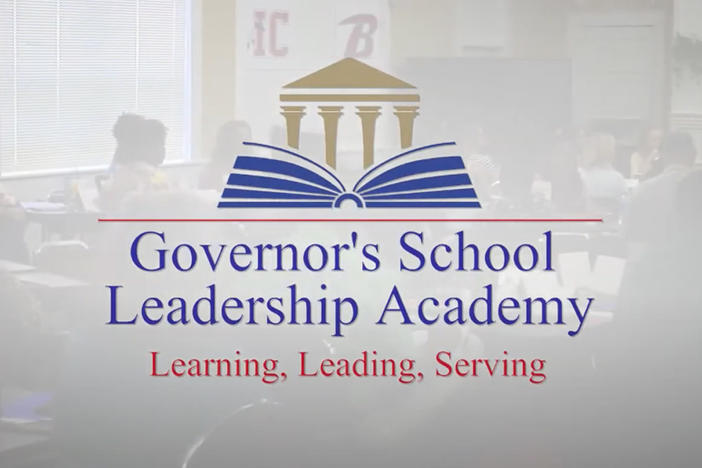
Section Branding
Header Content
Georgia Commission On The Holocaust Presents Anne Frank Exhibit
Primary Content

“I don’t want to have lived in vain like most people. I want to be useful or bring enjoyment to all people, even those I’ve never met. I want to go on living even after my death!”
Anne Frank. Her name alone fills people with empathy and sadness. When Anne Frank wrote these words in her diary, she had no way of knowing the impact that she would have on generations of people worldwide. Her story is both heartbreaking and heroic, a tragic account of a young Jewish girl growing up in Europe during a time of unfathomable treatment by Nazi Germany.
Anne’s story, set against the backdrop of one of the darkest moments of history—World War II and the Holocaust, is revealed in the exhibit, Anne Frank in the World: 1929-1945 presented by the Georgia Commission on the Holocaust. The exhibit uses over 600 photographs, The Short Life of Anne Frank video, and a replica of Anne’s room in-hiding to teach lessons of anti-Semitism and the state-sponsored attempt to systematically abolish an entire group of people by Nazi Germany.
Additionally, Georgia Public Broadcasting was pleased to donate some of the World War II survivor videos from our collection to bring the exhibit to life for students. GPB’s World War II Veterans Oral History Project presents the story of World War II through the personal accounts of men and women from Georgia whose lives were touched by the war.
According to the United States Holocaust Memorial Museum, “Holocaust education leads to informed decision making and appropriate action to recognize and confront threats to human rights including intolerance, anti semitism, racism and ignorance. It also addresses one of the central mandates of education in the United States, which is to examine what it means to be a responsible citizen.”
To help teachers better educate their students, the Georgia Commission on the Holocaust provides resources, materials, programs, workshops, and exhibits free of cost. The Holocaust Learning Trunk Project provides trunks filled with resources and materials to support the teaching of the Holocaust to middle school teachers throughout the state. Middle school educators may apply to receive a trunk free of charge by contacting their respective housing contact to check out a trunk. Teaching the Holocaust requires acute awareness of the subject matter; therefore, the Commission hosts workshops throughout the state to provide teachers with the content and tools necessary to teach historically accurate information with a high level of sensitivity.
For schools that cannot make the journey to Sandy Springs to visit the exhibit, traveling exhibits are available for loan to schools and communities. Both of these displays, “Georgia’s Response to the Holocaust” and “Witness to the Holocaust” involve first-hand accounts of the impact of Hitler’s rise to power and the horrors of Nazi concentration camps. The Georgia Commission on the Holocaust’s website also includes first-person accounts from survivors, liberators, and witnesses; schools and communities can also request a speaker from their Speakers Bureau.
From Anne Frank, there are lessons to be learned. Not just for our students, but for us as well. While her story depicts a tragic end to unspeakable cruelties, it also reminds us about the need not just for tolerance, but for acceptance of our differences. The Georgia Commission on the Holocaust gives us access to free resources needed to teach our students about historical events and people who teach lessons that are still relevant today.
Anne Frank’s words make a more meaningful impact than we can, “It's really a wonder that I haven't dropped all my ideals, because they seem so absurd and impossible to carry out. Yet I keep them, because in spite of everything, I still believe that people are really good at heart...”
Secondary Content
Bottom Content





